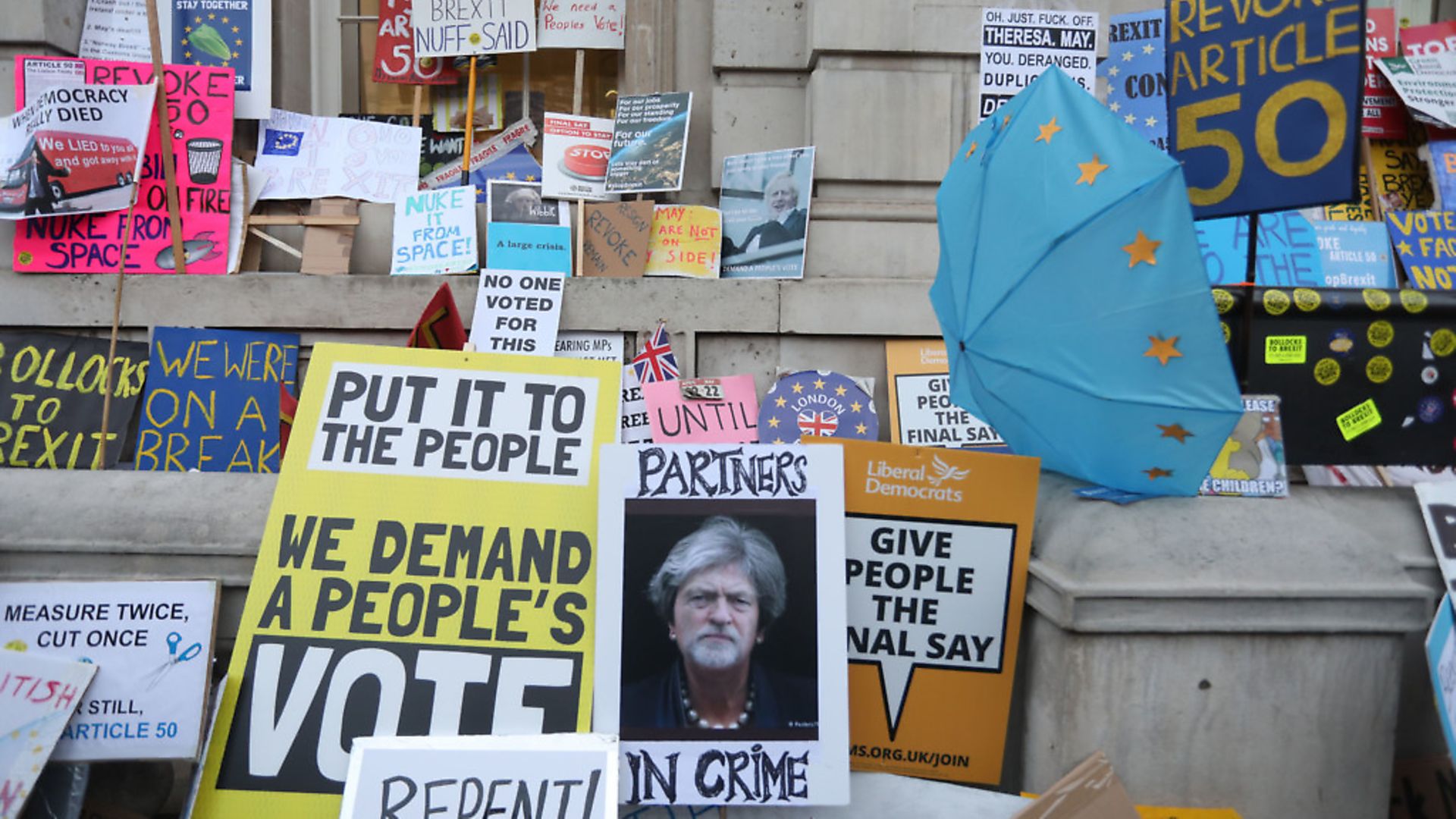
JOHNNY LUCAS argues a Customs Union does not fulfil the undeliverable promises of 2016, and does not to give UK citizens what they so desperately need.
Some MPs are slowly waking up to smell the bitter realities of Brexit. After the repeated disaster of May’s deal, the slow-motion trainwreck that was the Malthouse Compromise, and the pie-in-the-sky (or head-in-the-sand) theories about Canada and Norway-style deals, there is a fresh appetite for compromise in the commons. This has led them to examine a Customs Union as the solution to the Brexit problem.
Just like those previous solutions, it will disappoint them. Of course, it will take time for its shortcomings to sink in, valuable time that could be spent delivering a People’s Vote, and time that is rapidly running out as we approach the second deadline for exiting the EU. So, to all the MPs who read The New European: think of the following points as a shortcut to what will inevitably occur next week. You will save yourselves, and the general public, a considerable headache.
Firstly, though the Customs Union is being presented as the answer to uncertainties about Brexit, it only asks more questions. Some only affect Westminster. For example, if (and that’s a massive ‘if’) the government agreed to change the Political Declaration to show support for negotiating a Customs Union, how could anyone be sure that a future government would, or even could, actually deliver on it? From the very beginning, the Customs Union tries to kick the can further down the road to a player who doesn’t actually exist yet.
Then there’s the question which focuses on the integrity of our country: wouldn’t the UK have to be in the single market as well as the customs union, in order to avoid a hard border in Ireland? Of course it would: regulatory alignment will still be required. This is not a new question, and it isn’t a new answer. Its repetition is explainable in two ways: either there’s an epidemic of selective deafness and memory loss in parliament, or citizens in Northern Ireland are being repeatedly treated as second-class, beholden to whatever Westminster deems expedient. Do not expect the support of the DUP in getting a Customs Union over the line.
The problem of logistics over imports and exports also rears its head at the Dover-Calais crossing. If we were to be in a Customs Union but have divergent health rules (which is almost inevitable as we move away from EU regulations – three cheers for sovereignty) then this would mean lengthy food and plant checks on exports to the EU27.
Other questions range from issues over trade (would the UK have any say over its trade policy?) to job security (what protection, if any, would a customs union provide for the UK services sector?) to the broader economy (what would be the long-term impact from staying only in a customs union?). Because it hasn’t yet been looked at in the Commons in detail, the illusion (or do I mean delusion?) persists that these questions will answer themselves in due time, but this is a mistake. We know the answers to these questions already, and all of them fail to deliver on what was promised in the 2016 referendum.
A Customs Union means aligning with the EU’s common external tariff. This means losing control of the ability to set the UK’s common external tariff – de facto losing the ability to have an independent trade policy. Though we will be out of the EU in name, we will still have to follow their policies after we leave. This also means that the UK’s trade policy on goods would be set in Brussels, without the UK having a say. This should be ringing alarm bells labelled ‘sovereignty’ in MPs’ heads. How are they planning to sell this mud pie as a cake to their constituents?
Let’s move on to services, the backbone of the UK economy (79% of it, to be precise). Services are covered by UK membership of the single market, so being in a customs union but not in the single market would make it significantly harder for UK service providers to sell their services across the EU. We cannot leave nearly four fifths of our economy out to dry, it would be economic suicide.
The phrase ‘Customs Union’ sounds nice. They’re comforting, serious words which promise a sensible solution to a crisis which threatens to swallow this country whole. But they are, ultimately, just that – words to make you feel better, not to fulfil the undeliverable promises of 2016, and certainly not to give UK citizens what they so desperately need: a clear question, and a clear answer, in the form of a People’s Vote.
• Johnny Lucas is events organiser for Our Future, Our Choice, a young anti-Brexit group campaigning for a People’s Vote.









